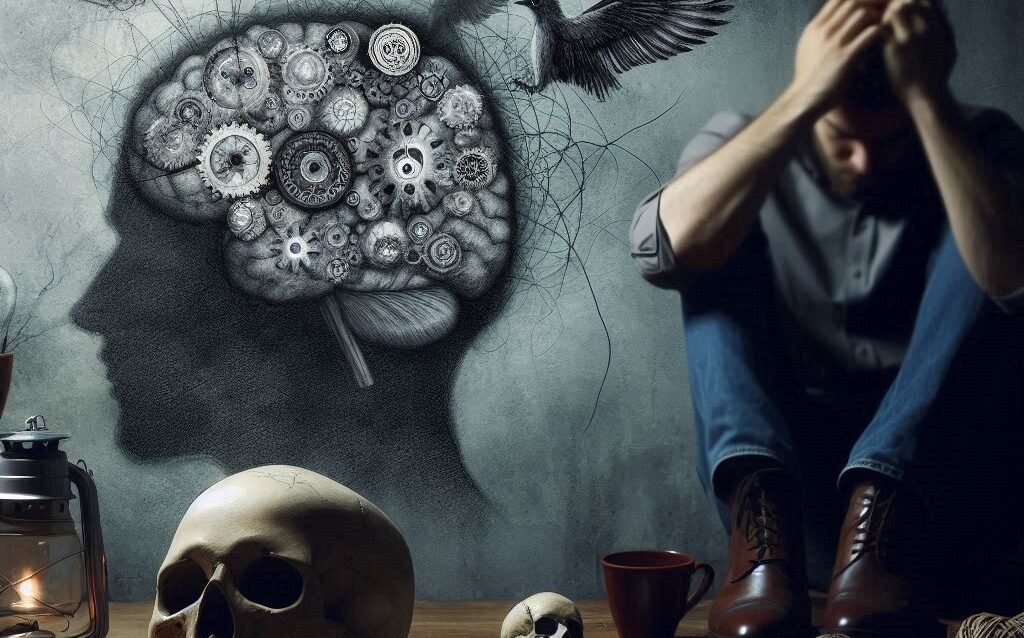Depression is a psychological condition that profoundly affects an individual’s mood, causing noticeable changes in their thoughts, feelings, and behavior. Those suffering from depression experience persistent sadness, loss of interest, and a lack of motivation, which can escalate to self-loathing. Depression is a chronic illness that significantly impacts daily life and may lead to physical symptoms such as unexplained pain, and in severe cases, can result in suicide.
Misconceptions About Depression
Depression is not merely a fleeting sadness or moments of gloom that can be easily overcome, nor is it a sign of personal weakness or helplessness. It is a serious illness, akin to diabetes or high blood pressure, and requires professional medical care and appropriate treatment.
Age Groups and Most Affected Demographics
Most cases of depression begin between the ages of 20 and 30, and fewer women are often diagnosed compared to men. This discrepancy may be attributed to the fact that women are more likely to seek medical help, while men may hesitate to consult psychiatrists due to societal notions surrounding masculinity.
Symptoms of Depression
Symptoms of depression include:
- Persistent feelings of sadness.
- Irritability over trivial matters.
- Frustration and loss of motivation.
- Disinterest in enjoyable activities, such as visiting friends or engaging in hobbies.
- Decreased sexual desire.
- Sleep disturbances, including insomnia or excessive sleeping.
- Appetite changes, leading to weight loss or gain.
- Outbursts of anger.
- Slowed thinking and speech.
- Chronic fatigue and loss of energy.
- Feelings of worthlessness and self-loathing.
- Thoughts of death or suicide.
- Unexplained physical pains, such as headaches and backaches.
Causes of Depression
The causes of depression are varied and may include:
- Decreased levels of neurotransmitters, particularly serotonin, in the brain.
- Anatomical differences in the brain that may predispose individuals to the illness.
- Hormonal changes, especially those related to thyroid disorders.
- Genetic factors, as some families show increased risks of depression.
- Life events that may trigger the condition, such as losing a loved one or experiencing financial difficulties.
- Adverse childhood experiences, such as abuse or parental loss.
Risk Factors
Risk factors for depression include:
- A family history of depression, indicating a genetic predisposition.
- Greater susceptibility in women.
- Experiences of childhood abuse or trauma.
- Going through difficult circumstances, such as the death of a close person.
- A lack of friends and social support networks.
- Childbirth, with increased risks of postpartum depression.
- Previous experiences of depression.
- Chronic or severe illnesses, such as AIDS, diabetes, or heart disease.
- Certain behavioral patterns, including low self-esteem, dependency on others, and excessive self-criticism.
- Substance abuse, including alcohol and drugs.
- Some medications, such as certain blood pressure drugs; consult your doctor about potential side effects.
Complications of Depression
Depression can lead to several complications, including:
- Deterioration of quality of life.
- Development of anxiety disorders.
- Academic or work-related difficulties.
- Family and marital problems.
- Social isolation.
- Self-harm, where individuals may intentionally injure themselves.
- Increased mortality due to other diseases.
- Substance abuse or addiction.
- Suicide.
Treatment for Depression
Treatment options include medication and psychotherapy, which involves consulting a mental health professional to discuss feelings and thoughts, equipping individuals with new coping skills.
Prevention of Depression
While there is no guaranteed method to prevent depression, various steps can reduce its likelihood and aid in early diagnosis and management, such as:
- Engaging in regular physical activity.
- Avoiding alcohol.
- Maintaining a supportive social network of friends and family, especially during crises.
- Learning reliable information about depression, particularly if you are at risk.
- Managing and reducing stress.
- Being alert to early symptoms, such as sleep disturbances or loss of sexual interest, and seeking medical advice promptly, as delaying treatment can worsen the condition and make it harder to treat.
Depression is a condition that necessitates thorough examination and specialized care. Recognizing symptoms and responding quickly is crucial for improving mental and overall health.




